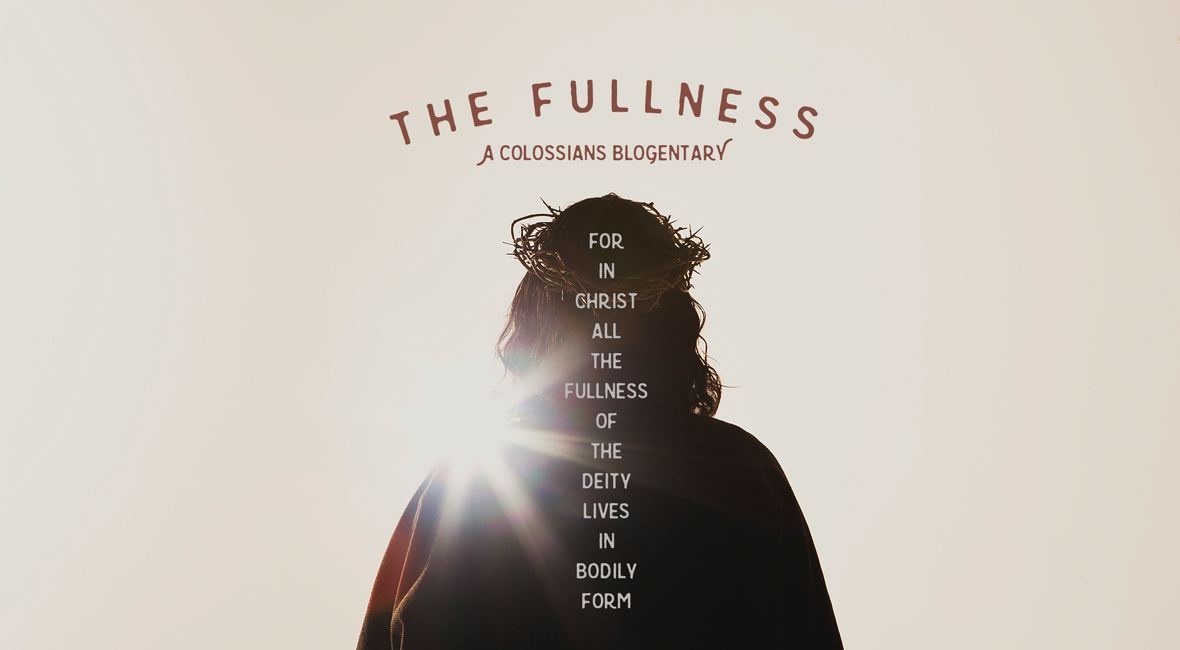The Fullness: Colossians 1:9-10a

Paul’s Prayer – 1:9-10a
9 For this reason, since the day we heard about you, we have not stopped praying for you. We continually ask God to fill you with the knowledge of his will through all the wisdom and understanding that the Spirit gives, 10 so that you may live a life worthy of the Lord and please him in every way…
Paul and Timothy are in constant prayer for the Colossians even though they do not know them personally. They are linked to the church through Epaphras, the disciple of Paul who took the Gospel to Colossae and the surrounding area. Despite the distance, relational as well as geographical, Paul sees himself as pastorally responsible for the young congregation – responsible enough to pray for them often (not just once or twice as he happens to think of them, but with intentionality and regularity). In this, Paul is setting a pastoral example for ministers everywhere. Our prayers should encompass those under our direct spiritual care, as well as those who are under the care of our own disciples and friends. By example, Paul commands us to pray for those in our disciples’ flocks. By doing this, we are honoring those we have raised up in the faith.
To know God’s will is to want God’s will.
“The human responsibility is to place oneself in an environment conducive to spiritual growth where God can reveal his mind.”[i] As we seek to live a life that is itself an answer to Paul’s prayer, we must put ourselves in position to receive wisdom and understanding from the Holy Spirit. “The Holy Spirit teaches us as we submit to Him.”[ii] We must submit ourselves to the Spirit in order to receive the wisdom he offers. This wisdom is not something we can attain to on our own; it must be revealed to us by God himself.
Being filled with the knowledge of God’s will is wonderful, but it is not an end in itself. The purpose of knowing God’s will is to be equipped to live a life worthy of Jesus, pleasing him in every way. In order to please God with our lives, we must know what he wants – the sort of things that are in accord with his will. This, of course, is not a profound statement; it is true of every person. Knowing what my wife wants and loves enables me to please her. Conversely, if I am ignorant of her will and desires, I am certain to disappoint her. In fact, such ignorance betrays an inability to love her well; or more to the point, that I simply don’t love her at all. You cannot love someone of whom you are ignorant.
The purpose of knowing God’s will is to be equipped to live a life worthy of Jesus, pleasing him in every way.
The Jewish Rabbis had a word for “living a life worthy of God,” and that word was halakah. This is the Hebrew word for “walking,” and it became synonymous for obeying God. Some Christians may remember being asked, “Brother, how is your walk?” This may seem like an arcane statement or a bit of Christianese, but it is derived from a beautiful word picture that encapsulates what it means to live worthily of the Lord. “[Paul’s] prayer was directed to transformation of character and witness. …In the Old Testament and Qumran literature, the proper response to God is the ‘walk.’ …One of the first commands from God was given to Abraham who was told to ‘walk before me and be blameless’ (Gen 17:1). From that time, the term ‘walk’ became synonymous with obedience to the grace of God. Paul’s purpose was clearly ethical rather than intellectual; it related to character more than to abstract thought.”[iv] When it comes to the knowledge of God’s will and the wisdom and understanding of the Spirit, the proof is not in the amount of information retained and recalled, but in the abundance of godly character demonstrated by your everyday halakah.
The Takeaway
God’s will is knowable. Many Christians, especially young adults going through times of major transition, pray to know God’s will about where to work, where to live, and who to marry. Some get frustrated because they don’t hear specific answers. While God may very well have specific answers to those questions, it is more likely that he wants to equip you to be able to make these decisions with the wisdom offered by the Spirit. God doesn’t necessarily want to make these major decisions for us. Rather, he wants us to become the kind of people who are capable of making wise choices when faced with tough questions or multiple options.
God wants us to become the kind of people who are capable of making wise choices when faced with tough questions or multiple options.
[i] Melick, R. R. (1991). Philippians, Colossians, Philemon (Vol. 32, p. 202). Nashville: Broadman & Holman Publishers.
[ii] Wiersbe, W. W. (1996). The Bible exposition commentary (Vol. 2, p. 111). Wheaton, IL: Victor Books.
[iii] Ibid.
[iv] Melick, R. R., p. 203.

